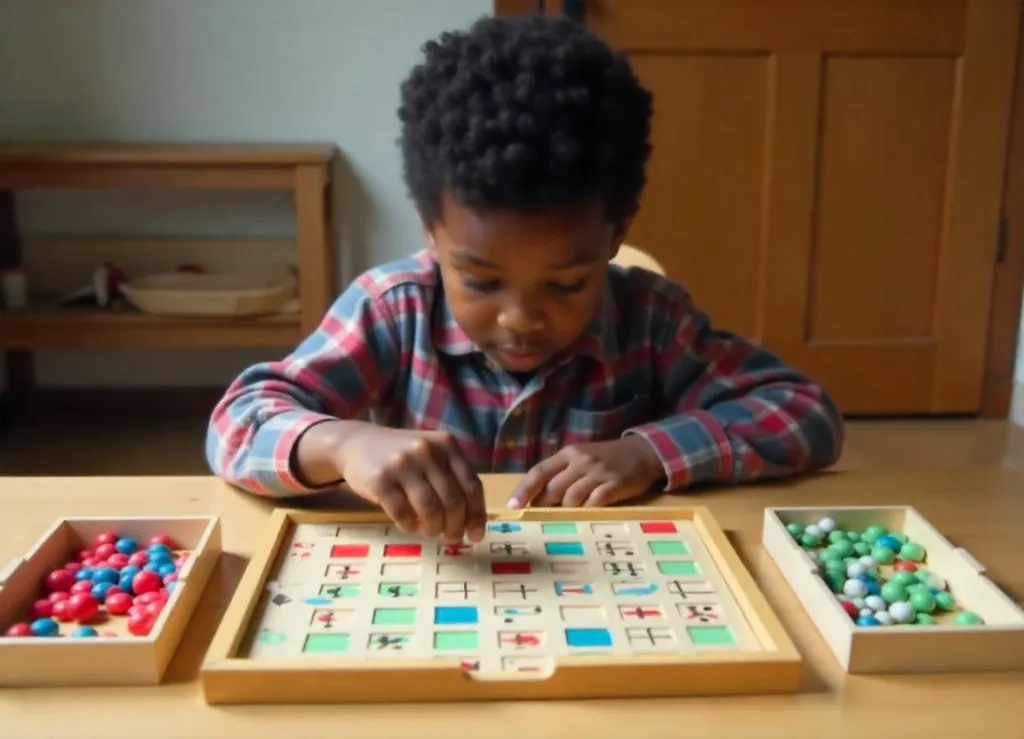Elementary Montessori: Fostering Curiosity & Responsibility
Montessori for Elementary Students: Fostering Curiosity & Responsibility
The Montessori philosophy is widely known for its emphasis on hands-on learning, independence, and respect for a child’s natural psychological #development. While many associate Montessori with #early-childhood education, the method is just as powerful and relevant for elementary #students, where it #nurtures two essential lifelong traits: curiosity and responsibility.
At Montessori4Teachers.com, we believe that empowering elementary-aged learners through the Montessori approach lays a strong foundation not only for academic achievement but also for personal #growth-and civic consciousness.
Why Montessori for Elementary?
Montessori elementary programs, which typically serve children aged 6 to 12, are grounded in the understanding that children at this age are driven by a deep desire to explore the world and understand how it works. This phase—known as the “second plane of development”—is marked by intellectual curiosity, moral development, and a growing sense of social belonging.
Rather than confining students to rigid #lesson-plans or passive instruction, Montessori #classrooms offer:
-
Integrated curriculum across subjects like history, geography, science, #math, and literature.
-
Freedom with responsibility, allowing students to choose their work while learning to manage time and meet expectations.
-
Concrete materials that #lead to abstract thinking, supporting deeper comprehension.
-
Collaborative work, fostering #empathy and communication.
Fostering Curiosity: The Engine of Lifelong Learning
Curiosity is the cornerstone of Montessori education. In elementary classrooms, this is cultivated through:
Big Picture Learning
Montessori education introduces children to the "Great Lessons"—engaging stories about the universe, life on Earth, the history of humans, #language, and mathematics. These cosmic lessons ignite wonder and invite exploration.
Student-Directed Inquiry
Rather than handing out answers, Montessori guides encourage questions. When a child asks, “Why do volcanoes erupt?” or “How did ancient Egyptians write?”, they are invited to research, present, and build knowledge through self-directed projects.
Hands-On Exploration
Whether it's dissecting a flower, mapping continents, or building geometric solids, Montessori students learn by doing. This practical #engagement reinforces curiosity and helps concepts stick.
Cultivating Responsibility: Building Independent Thinkers
Montessori education doesn’t just encourage students to ask questions—it helps them take ownership of their learning and behavior. Responsibility is #developed through:
Freedom Within Limits
Children choose their tasks from a curated selection of appropriate work. With guidance, they learn to plan their day, meet deadlines, and pursue topics that interest them—skills that translate directly into real-world success.
Classroom Stewardship
Montessori students care for their environment, from cleaning materials to tending classroom plants. These daily acts build a sense of accountability and pride in their space.
Peer Teaching and Conflict Resolution
Older students often mentor younger peers, and disagreements are addressed through respectful dialogue and problem-solving. This social learning teaches empathy and leadership.
Supporting Teachers in the Montessori Journey
Elementary Montessori #teachers act as guides rather than lecturers. They prepare rich learning environments, observe students closely, and offer individualized lessons at just the right moment. At Montessori4Teachers.com, we support #educators with tools, training, and community—because well-prepared teachers are the key to thriving classrooms.
Conclusion
Montessori for elementary students is a powerful approach that honors the unique #developmental needs of children between 6 and 12. By fostering curiosity, we nurture a love of learning. By instilling responsibility, we prepare students for meaningful participation in their communities and beyond.
As educators, #parents, and advocates, we must continue to create learning environments where children are not just taught—but inspired. Explore more resources and insights at Montessori4Teachers.com.
- The Prepared Environment: Montessori Class Design
- Math Foundations in Early Childhood
- Raising Peaceful Learners: The Montessori Advantage
- Engaging Parents in the Montessori Toddler Classroom
- Montessori Foundations
- Building Early Science Foundations
- Teach the Montessori Way: A Practical Guide
- Authentic Montessori in Action
- The Montessori Classroom: Theory to Practice
- Intrinsic Motivation in Montessori Education
- Cosmic Education: Fostering Interconnected Learning in Montessori Elementary Classrooms
- Understanding Peer Learning in Montessori Education
- Long-Term Benefits for Students: Montessori Education
- The Role of Collaboration and Project-Based Learning in Montessori Schools
- Motivation’s vital role in how children engage with learning
- Shelf Work in Montessori Education: Encouraging Independence and Learning
- Focus on the Whole Child: The Montessori Approach to Holistic Development
- Unlocking Your Path to Montessori: The Ultimate Guide to Becoming an Educator
- Understanding the Basis and Benefits of Montessori Education
- Elementary Montessori Education: A Unique Approach to Learning
- Understanding Montessori’s Vision of Childhood
- Montessori Magic at Home: Tips for Every Age
- Elementary Montessori: Fostering Curiosity & Responsibility
- Montessori at Home: Chores That Empower
- Learning in Layers: The Power of Mixed Ages
- 🌱 Can Montessori Help Heal Environmental Anxiety in Today’s Children?
